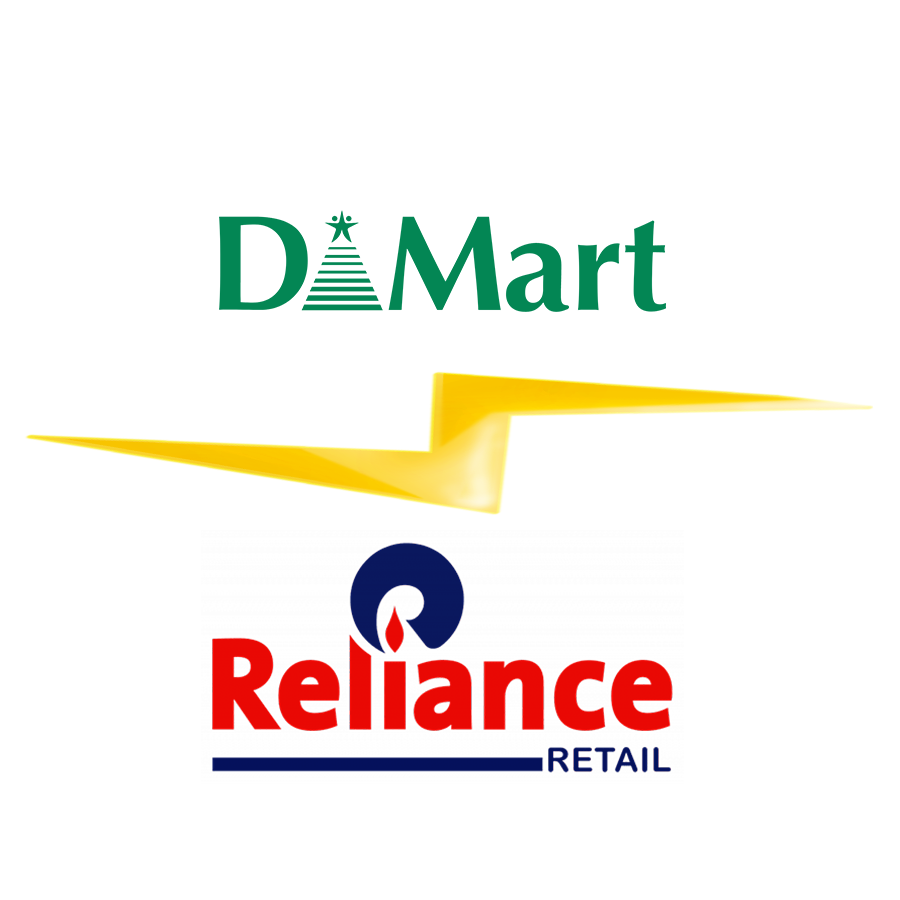Delve into an in-depth comparison of DMart and Reliance Retail’s business models. Gain insights into how these retail giants operate and succeed using Alexander Osterwalder’s Business Model Canvas.
Introduction to DMart
Founded in 2002 by Radhakishan Damani, an astute investor and billionaire, DMart is one of the most profitable retail chains in India. With a focus on efficiency and low-price strategy, DMart transformed the face of the Indian retail sector, marking a paradigm shift from the traditional mom-and-pop stores. The brand was born out of Damani’s vision to create a chain of hypermarkets offering an array of products at economical rates, enabling value-for-money shopping.
Introduction to Reliance Retail
Reliance Retail, a subsidiary of Reliance Industries Ltd (RIL), was established by Mukesh Ambani in 2006. Ambani envisioned creating a retail business that would leverage his existing network of petroleum and communication businesses, allowing synergistic growth and development. As a part of one of the biggest conglomerates in India, Reliance Retail soon emerged as a giant in the sector, offering everything from groceries to electronics, and fashion to farm implements.
Applying the Business Model Canvas
The Business Model Canvas, developed by Alexander Osterwalder, is a strategic management tool used to visualize, design, and test a company’s business model. It consists of nine building blocks: value propositions, customer segments, channels, customer relationships, revenue streams, key resources, key activities, key partnerships, and cost structure.
Let’s now unravel the business models of DMart and Reliance Retail using this framework.
Value Proposition
DMart
DMart’s main value proposition lies in providing quality goods at consistently low prices. The company ensures this through bulk purchasing, consistent inventory turnover, and stringent cost controls. This is coupled with a wide range of products, making DMart a one-stop shopping destination.
Reliance Retail
Reliance Retail, on the other hand, offers a broad array of brands, both domestic and international, across multiple categories. Its value proposition extends beyond product variety to include personalized services, convenient store locations, and seamless omnichannel experiences.
Customer Segments
DMart
DMart primarily targets middle and lower-income groups who value affordability over brand preference. Its stores are strategically located in residential areas to attract local households.
Reliance Retail
Reliance Retail caters to a diverse customer base ranging from value-conscious to premium customers. Its different retail formats like Reliance Fresh, Reliance Digital, and Reliance Trends cater to distinct customer segments.
Channels
DMart
DMart relies heavily on brick-and-mortar stores for sales, with a limited online presence. This aligns with its value proposition of providing affordable goods by saving on costs associated with e-commerce.
Reliance Retail
Reliance Retail employs an omnichannel retail strategy, combining offline retail stores with a strong online presence through its e-commerce platform, JioMart. This enables a wider reach and customer convenience.
Customer Relationships
DMart
DMart’s relationship with its customers is transactional, focusing on providing low-priced, quality goods. While there is no formal loyalty program, the strategy of everyday low prices fosters customer loyalty.
Reliance Retail
Reliance Retail, apart from transactional relationships, focuses on personalized relationships. It offers loyalty programs, personalized offers, and better after-sales service to enhance customer retention and loyalty.
Revenue Streams
DMart
DMart’s revenue primarily comes from the sale of goods in its stores. It follows an EDLP (Every Day Low Price) strategy which drives a high volume of sales, contributing to its revenue.
Reliance Retail
Reliance Retail’s revenue comes from both offline and online channels. Additionally, it also earns revenue from its private label products, diverse partnerships, and franchise model.
Key Resources
DMart
DMart’s key resources include its retail stores, inventory, supply chain system, and its trained personnel who ensure efficient store operations.
Reliance Retail
For Reliance Retail, its extensive retail network, omnichannel platform, supply chain infrastructure, and ties within the larger Reliance ecosystem are crucial resources.
Key Activities
DMart
DMart’s key activities include procurement, inventory management, store operations, and sales. Its focus is on cost efficiency, inventory turnover, and maintaining low prices.
Reliance Retail
Reliance Retail’s key activities involve procurement, inventory management, sales, and managing its digital platform. It also focuses on customer relationship management and expansion activities.
Key Partnerships
DMart
DMart has strong relationships with suppliers, which helps it secure better trade terms, contributing to its low-price strategy. However, it does not have significant partnerships as such and operates primarily independently.
Reliance Retail
Reliance Retail has partnerships across its value chain, from suppliers to technology providers. It leverages synergies with other businesses within the Reliance group, such as telecom and petroleum.
Cost Structure
DMart
DMart operates on a low-cost business model, focusing on cost efficiency in all areas from procurement to store operations. It minimizes expenses on promotions, advertising, and store aesthetics.
Reliance Retail
Reliance Retail has a mixed cost structure, with significant investment in store infrastructure, e-commerce, advertising, and customer service, along with costs related to procurement and operations.
The contrast between DMart and Reliance Retail’s business models is a testament to the diverse ways in which retail businesses can thrive. While DMart focuses on cost efficiency and delivering everyday low prices, Reliance Retail leverages its diverse portfolio, omnichannel strategy, and synergy with the larger Reliance ecosystem.
The key takeaway here is that understanding your customer base, leveraging your strengths, and aligning your business model accordingly are critical success factors in retail. While DMart thrives on simplicity and efficiency, Reliance Retail thrives on diversity and integration.
This analysis provides aspiring entrepreneurs and business enthusiasts with invaluable insights into the makings of successful retail models. Yet, it’s important to note that each model comes with its own set of challenges. The ever-evolving retail landscape requires businesses to constantly innovate and adapt.
Finally, it’s crucial to remember that while business models provide a strategic blueprint, the actual game-changer lies in execution. Both DMart and Reliance Retail have demonstrated impeccable execution capabilities, contributing significantly to their success.
Did you know? Startups like to use our coworking space in Bangalore
Call +917090977222 to reserve your space at Work Theater
Learn more about our coworking space on our YouTube channel Work Theater Studios where we talk about a variety of topics including personal finance, entrepreneurship, business and life.





2 thoughts on “Business Comparison of DMart and Reliance Retail”
I think it would be interesting to compare the two businesses in more detail.
This is so well written. I was always curious about how DMart and Reliance Retail work and I have found my answers now!